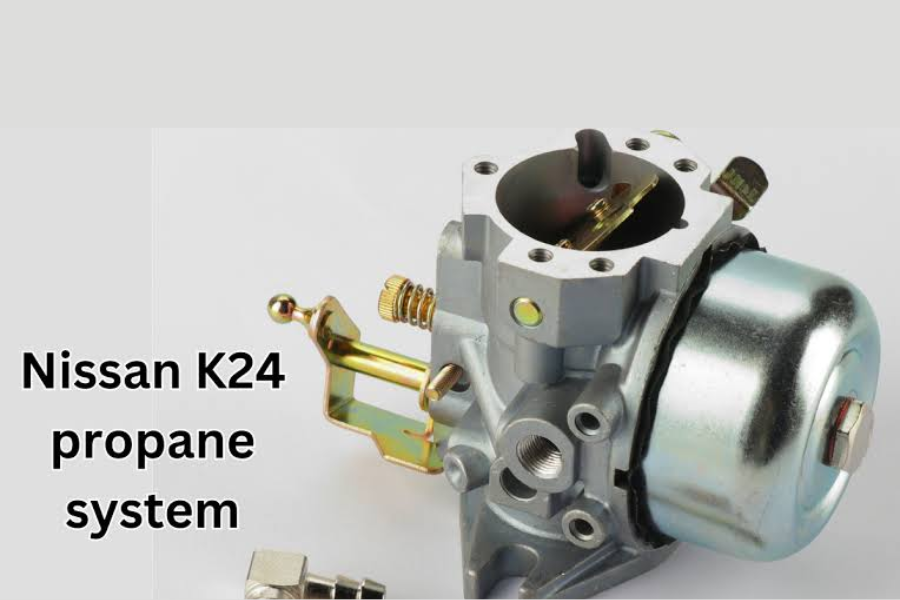Parts for Nissan K24 Propane Carburetor: An Extensive Handbook for Enthusiasts
Changing out your Nissan K24 engine’s carburetor components to propane ones will significantly improve performance and efficiency. It’s important to understand how propane systems operate and how they may benefit your vehicle, regardless of experience level with cars. This in-depth tutorial will take you through the benefits of propane, the components that make up a propane carburetor system, and the things you should think about before switching to a propane engine for your Nissan K24.
Why Propane? The Benefits of Propane Carburetors
Propane-powered engines have become more and more common in recent years since they are more affordable, have better environmental effects, and have longer-lasting engines. But why precisely should you consider propane for your Nissan K24 engine? Here are a few strong arguments:
1. Fuel Efficiency and Cost Savings
Propane’s fuel economy is one of its key benefits. When it comes to turning fuel into useful energy, propane engines outperform conventional gasoline engines. This leads to fewer trips to the petrol station and savings over time. Propane creates less residue owing to its cleaner burning nature, which results in fewer engine deposits and longer-lasting components.
2. Environmentally Friendly
Propane is an excellent choice if you care about the environment. When compared to gasoline, it produces less greenhouse gas emissions and dangerous pollution. You can help maintain cleaner air by switching to propane for your Nissan K24, which will also lessen your carbon impact. Particularly in places where there are stringent emissions laws, the reduced emissions can have a big impact.
3. Extended Engine Longevity
Propane burns at a cooler temperature than gasoline, which helps reduce engine wear and tear. The cooler combustion process means that critical engine components are subjected to less stress, increasing their lifespan. Additionally, propane doesn’t dilute oil or cause harmful deposits, which further protects your Nissan K24 engine from premature wear.
Essential Nissan K24 Propane Carburetor Parts
A few essential parts must be installed if you intend to convert the Nissan K24 engine to run on propane. Below is a summary of the key components of a propane carburetor system:
1. Propane Carburetor
The system’s essential component is the propane carburetor. Its responsibility is to blend propane and air in the proper proportions to guarantee ideal combustion. Unlike gasoline carburetors, propane carburetors are intended to manage the particular properties of propane fuel, assuring effective energy conversion. To get the maximum performance out of the Nissan K24 engine, get a high-quality propane carburetor.
2. Propane Mixer
The propane and air need to be mixed in the propane mixer before the mixture enters the carburetor. Maintaining the right air-to-fuel ratio and making sure the engine runs smoothly are crucial to preventing issues like poor performance or engine damage. A Nissan K24 engine cannot achieve optimal combustion without a calibrated propane mixer.
3. Propane Regulator
When using the engine, the high-pressure propane stored in the fuel tank is lowered to a safe level thanks to the propane regulator. This part is necessary to keep fuel pressure constant, which is critical for engine safety and performance. Your engine will be shielded against fuel surges and irregularities, which can cause performance deterioration, by a trustworthy propane regulator.
4. Fuel Lockoff
As a safety measure, the fuel lockoff regulates the propane flow from the tank to the carburetor. It is essential for avoiding leaks and guaranteeing safe operation since it stops gasoline from flowing while the engine is off. Any propane conversion on your Nissan K24 engine requires the installation of an appropriate fuel lockoff device.
5. Propane Fuel Tank
Although it is not a part of the carburetor system directly, the propane fuel tank is essential for holding the gasoline that runs your engine. High pressure tolerance and safety measures like pressure release valves are built into automotive propane tanks. Maintaining performance and safety requires a steady fuel supply to the engine, which is provided by a well-maintained propane tank.
Upgrading to Propane: Key Considerations
Prior to converting your Nissan K24 engine to run on propane, there are a few crucial considerations you should make:
1. Availability of Propane
One of your main concerns should be how easy it is to get propane in your area. Propane is widely available, however finding it can occasionally be more difficult than finding gasoline, especially in remote locations. Make sure you have a reliable fuel source close by before making the swap.
2. Installation Process
Parts for propane carburetors must be installed by someone with some mechanical knowledge. Experienced auto enthusiasts might be able to do the process on their own, but if you’re not knowledgeable with engine conversions, it’s best to have expert assistance. A expert will verify that the propane system is setup appropriately and functions safely.
3. Initial Costs
Although propane systems might save you money over time, there may be a significant upfront cost. The price of the fuel tank, regulator, mixer, propane carburetor, and any other required parts must be taken into consideration. Additionally, installation fees might vary depending on whether you execute the work yourself or employ a professional. When thinking about making the transition, make sure to account for both the immediate expenses and the long-term savings.
How the Propane System Works
For a clearer understanding of how the propane system operates in a Nissan K24 engine, here’s a breakdown of the essential functions:
1. Propane Fuel Delivery
The liquid propane fuel is kept in the fuel tank. Propane is turned into vapor and sent through the fuel lockoff, which regulates fuel supply, once the engine is starting. After the propane reaches the regulator, the high pressure is lowered to a level appropriate for burning.
2. Air-Fuel Mixing
The propane is combined with air in the propane mixer subsequent to its passage through the regulator. Following that, the mixture is sent into the carburetor, where it is adjusted once again to guarantee the correct air-to-fuel ratio. The mixture is prepared for engine combustion once the ratio is accurate.
3. Combustion Process
In the combustion chamber, which is where the engine generates power, the propane-air combination is ignited. Propane produces cleaner pollutants, less wear on engine parts, and more efficient combustion due to its lower burning temperature than gasoline.
Safety Considerations for Propane Systems
As long as all parts are fitted and maintained correctly, running a Nissan K24 engine on propane is usually safe. However, there are a few safety measures you ought to do:
1. Propane Leak Prevention
Leaks of propane can cause major safety problems, such as fire threats. Always check that all gasoline lines, connectors, and the fuel lockoff are correctly sealed and in excellent operating condition. Frequently use a propane leak detector to look for leaks.
2. Proper Ventilation
Make sure there is adequate ventilation in any confined area where you are working on your car. Because propane is heavier than air, a leak might cause it to build up in low places, which could be harmful.
3. Routine Inspections
Make sure to periodically check the fuel tank, regulator, mixer, carburetor, and other components of your propane system. Keep an eye out for any damage, corrosion, or wear that can jeopardize the integrity of the system. To guarantee your Nissan K24 engine runs safely and effectively, take quick care of any problems.
Conclusion
Using propane carburetor components instead of original parts for your Nissan K24 engine will increase fuel economy, cut emissions, and extend engine life, among other advantages. But before making the move, it’s crucial to take things like propane supply, installation difficulty, and cost into account. Propane can be a reliable fuel source for your Nissan K24 for many years to come if the right parts are installed correctly.
If you’re considering the transition, take the time to study the finest propane carburetor components for your vehicle and consult a professional if needed. An engine that is cleaner, more efficient, and lasts longer may be yours with the correct configuration.
FAQs
1. What are the benefits of using propane in my Nissan K24 engine?
Propane provides better fuel efficiency, emits fewer pollutants, and extends engine life due to its cooler combustion temperatures.
2. Can I install propane carburetor parts myself?
If you’re experienced with engine modifications, you can install the parts yourself. Otherwise, it’s best to seek help from a mechanic who specializes in propane conversions.
3. Is propane more expensive than gasoline?
While propane prices can fluctuate, it is often cheaper per gallon than gasoline. Additionally, the increased fuel efficiency can result in long-term cost savings.
4. Does a propane engine require more maintenance?
Propane engines typically require less maintenance than gasoline engines because propane burns cleaner, reducing carbon deposits.
5. Is it safe to run my Nissan K24 on propane?
Yes, running your Nissan K24 on propane is safe if the system is installed and maintained properly. Ensure all components, especially the regulator and fuel lockoff, are functioning correctly to prevent issues.
6. Where can I find propane carburetor parts for my Nissan K24?
Propane carburetor components are available from specialist vehicle suppliers, internet merchants, and alternative fuel conversion-focused specialists.






